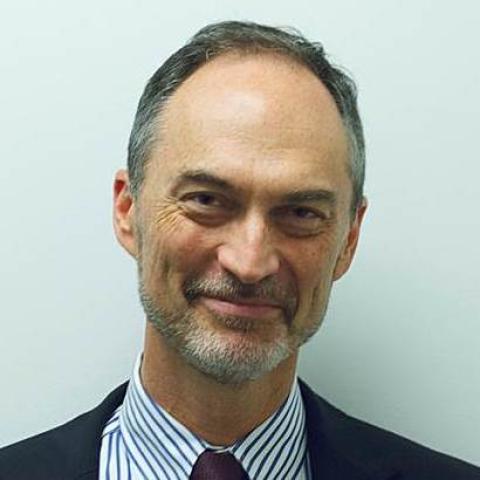On November 28, 2017, Charles Davidson testified before the Senate Judiciary Committee. Following is the full text of the testimony:
Chairman Grassley, Ranking Member Feinstein, and distinguished members of the committee, I appreciate the invitation to appear before you today.
**Strengthening our Financial Borders: The Importance of Anti-Money Laundering in Enhancing the Integrity of our Financial System, and Defending our Political System**
To remain a sovereign nation, we must be able to control our financial system and its integrity. Too often, the effects of financial crime are underappreciated. After all, it is just money. But money is power, and when we allow criminals and enemies of ours to control money within our economy, we are allowing potential sources of pernicious influence to exist in our midst, with treasure chests that can be drawn from on a
moment’s notice. We can have the strongest military in the world, we can “build a wall”, but if we can’t know and to some extent control who owns what, we are vulnerable to the power of money in the wrong hands.
So I would say S.1241 is important to maintain and enhance the integrity of our financial system, and is critical to defending our political system from non-transparent, stealth concentrations of wealth.
Stealth concentrations of wealth can be used for various purposes. In the case of criminals without political aspirations, making money laundering more difficult can help shrink their criminal activities, and interfere with their incentives. Thwarting terrorism can require very precise, sharp tools – relatively small sums of money can inflict horrific damage.
But now, we face a new 21st century conflict that was unanticipated. We thought liberal democracy had triumphed, that all would come to drink from the fountains of freedom and democracy. That has not happened. And our authoritarian opponents are using our financial system to conceal assets that can be used as agents of influence.
**The Challenge is not only Terrorism and Drugs and other Crime, but Rising Authoritarianism and Kleptocracy**
Added to the problems of terrorism and drugs, human trafficking and all sorts of other criminalities, we now face a major political crisis: Increasingly well-armed, powerful authoritarian and kleptocratic regimes have borrowed the playbook of criminality and white-collar financial crime, creating stealth concentrations of wealth within our jurisdictions. This is a relatively new threat that should have us on high alert. These authoritarian regimes are bent on achieving encroachments into our political system, and into our society at large. They are hostile regimes, committed to undermining our core values of freedom and democracy.
And these autocratic, hostile regimes share common traits: They are invariably ruled by kleptocratic “elites”, who use our shores and financial system to protect ill-gotten wealth that we safeguard for them. They are then able to use these stealth concentrations of wealth to shore up their power at home, and undermine us here. This is ill advised, even suicidal on our part.
S.1241 addresses some of these concerns, in particular sections 18 and 19, which address the concealment of accounts and asset ownership.
A Common Thread: Concealment
The program I manage at Hudson Institute has just released a report highly relevant to today’s subject, “Money Laundering for 21st Century Authoritarianism: Western
Enbablement of Kleptocracy”, by Ben Judah and Belinda Li. In the report, we describe a framework for money laundering. It’s all about concealment.
This framework identifies 3 stages of money laundering – placement, layering, and integration. Placement involves getting cash into the global banking system, somewhere. Layering involves obscuring the origins of the money, often moving the money through various entities and jurisdictions. Integration involves investing assets that have been effectively “cleansed”, their origin successfully concealed.
The end result is a stealth concentration of wealth in our midst, held by a criminal, a criminal organization, a terrorist or terrorist organization, a kleptocrat or kleptocratic regime unfriendly to our polity.
Concluding Remarks
I’d like to express my gratitude to those in our law enforcement community who are working hard to keep so-called “dirty money” out of our system. To support the efforts of law enforcement in battling financial crime, I would think we should be continually updating our anti-money laundering laws, maintaining and enhancing the tool kit available for law enforcement. Coming down the pike we have the whole crypto-currency question, and new technological challenges as yet unidentified or unimagined.
Inevitably, the battle against financial crime is a continuous process. There’s no finality to it, and to stay ahead of criminals and aggressive authoritarian kleptocrats we will need to be vigilant and combative for years to come. This is not a contest we can afford to lose.
* * * * * * * *
Afterthought: Cash in the 21st Century?
At some point, we should consider the wisdom of producing high denomination cash notes. In Europe, what is the logic of a 500 euro note? Low cost borrowing for the issuing body, but a facilitating factor in money laundering, malfeasance, and criminality of all sorts. The role of the $100 dollar bill in the drug trade and all sorts of criminal transactions should be re-considered. We need to think seriously about the privacy issues involved — complete transparency of ALL economic transactions may not be a desirable or realistic goal — but it would be timely to re-think “the problem of cash” as tender for all sorts of notoriously detrimental illegalities.
















